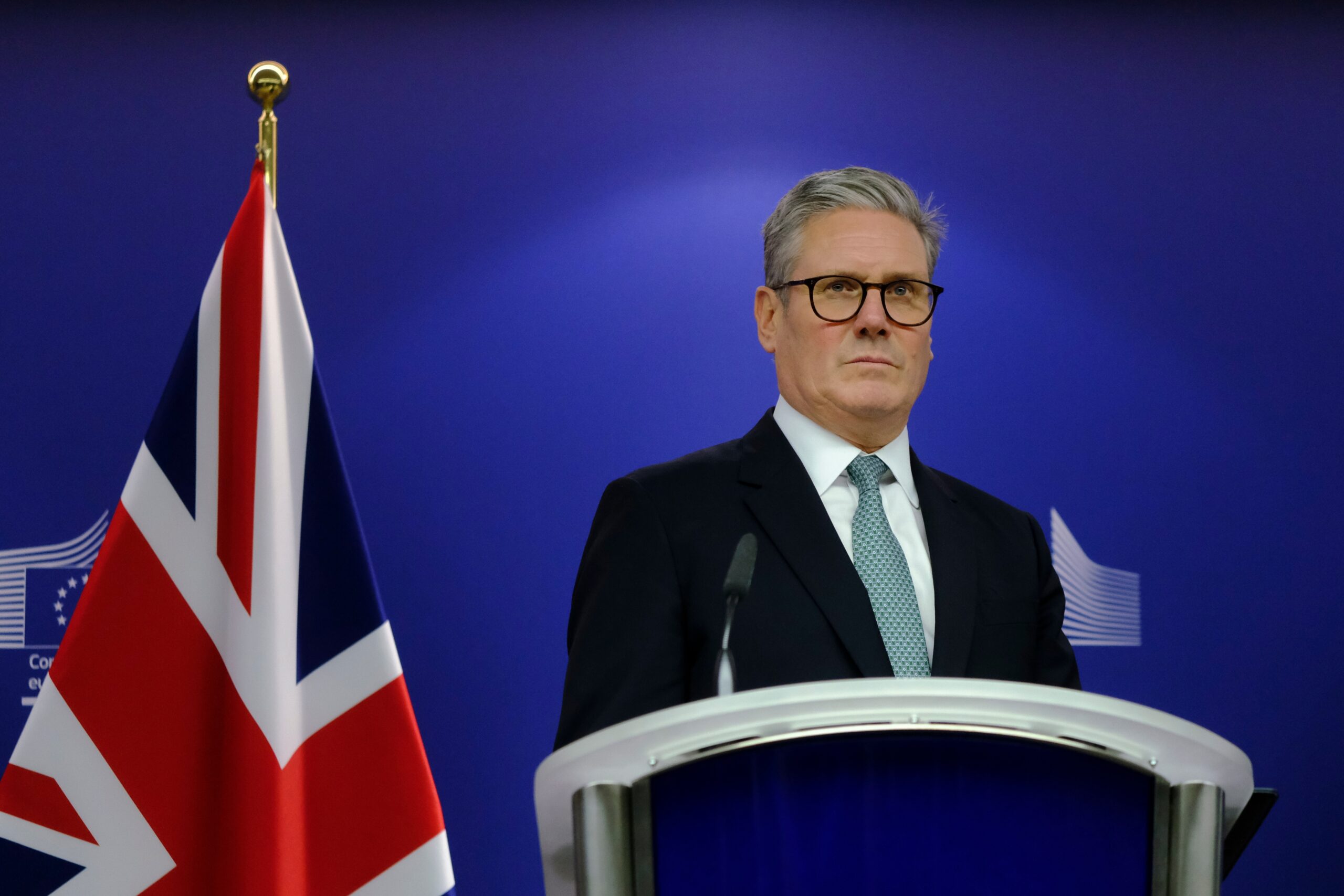UK Throws Shade – Tariffs Suspended!

UK Prime Minister Keir Starmer suspends tariffs on 89 British products to shield businesses from Trump’s escalating trade war that has already dragged China into a retaliatory spiral of economic protectionism.
At a Glance
- UK suspends tariffs on 89 products including pasta, fruit juices, and electric car batteries for two years
- British government projects the move will save domestic firms up to £17 million amid trade tensions
- Trump has implemented “reciprocal tariffs” imposing a 10% blanket tariff on UK goods
- China has retaliated against US’s 145% tariff with a 125% tariff on American imports
- Global stock markets initially rebounded after electronics were temporarily exempted from aggressive tariffs
UK Takes Defensive Measures Against Trade War Impact
As President Trump’s international trade war intensifies, the United Kingdom has moved to protect its domestic industries by suspending tariffs on 89 British products. Prime Minister Keir Starmer’s government announced the two-year suspension covering essential consumer goods such as pasta and fruit juices, along with industrial products including electric car batteries, spices, plastics, and gardening supplies.
This defensive measure comes as a direct response to Trump’s executive order implementing “reciprocal tariffs” that imposed a 10% blanket tariff on British exports to America.
The British government estimates these tariff suspensions will reduce costs for UK businesses by approximately £17 million. The Confederation of British Industry has expressed support for the move, emphasizing its potential to alleviate financial pressures on companies already struggling with the economic uncertainties caused by the escalating trade tensions.
This strategic decision aligns with Starmer’s broader aim to position Britain as a favorable business environment despite growing international trade barriers.
Trump’s Expanding Tariff Strategy
President Trump continues to broaden his tariff implementation, with plans to announce new duties on semiconductor chips. His administration has emphasized that no country is exempt from addressing what he terms “unfair trade balances.”
While smartphones and other consumer electronics were initially excluded from the highest tariffs on Chinese imports, Commerce Secretary Howard Lutnick indicated that new duties on critical technology products and semiconductors from China would be implemented within two months.
The administration’s stated goal focuses on encouraging domestic production of chips and semiconductors to reduce American dependency on foreign manufacturers. Consumer electronics have not been entirely exempted but instead placed in a “tariff bucket” subject to a 20% increase related to the administration’s fight against fentanyl.
The temporary exemption of some electronics from the most aggressive tariffs initially led to positive reactions in global stock markets, though economic analysts warn this relief may be short-lived.
China’s Retaliatory Measures and International Concerns
The trade tensions have already provoked significant retaliation from China, which responded to America’s 145% tariff on Chinese imports by imposing a 125% tariff on US goods. This escalating cycle of reciprocal protectionism has raised alarms among international economic observers, with the International Monetary Fund warning that continuing trade tensions could trigger substantial stock market corrections worldwide.
Chinese President Xi Jinping has warned that the trade war will produce no winners and advocated for maintaining a stable global trading system. Meanwhile, China’s foreign ministry has openly criticized the United States for using tariffs as an economic weapon, claiming such actions harm the entire global economy rather than just targeted nations. Despite the economic fallout, there appear to be no current plans for direct trade talks between Presidents Trump and Xi to resolve these escalating disputes.
Consumer Impact and Market Reactions
As the trade war intensifies, experts have begun advising consumers about potential price increases, though they caution against panic buying. Some companies have already announced price adjustments in response to the economic pressures, with Sony increasing PlayStation 5 console prices in select markets due to the challenging trade environment. Senator Elizabeth Warren has criticized Trump’s tariff implementation as inconsistent, suggesting the unpredictability could further deter investors and exacerbate market volatility.
“China’s foreign ministry says the U.S is hurting the entire world with its high tariffs. Foreign ministry spokesperson Lin Jian said: “The U.S. uses tariff as a weapon to exert maximum pressure and seek selfish gains, and puts its own interests over the public good of the international community.”
The impact of these tariff policies is already being closely monitored by voters in key states including Michigan, Texas, Tennessee, and Washington D.C. As businesses adjust to the new economic realities, the UK’s tariff suspension represents one of the first major defensive measures by a Western ally to mitigate the spreading economic effects of America’s aggressive trade stance. Whether other nations will follow with similar protective policies remains to be seen as the global trade landscape continues to shift dramatically.












